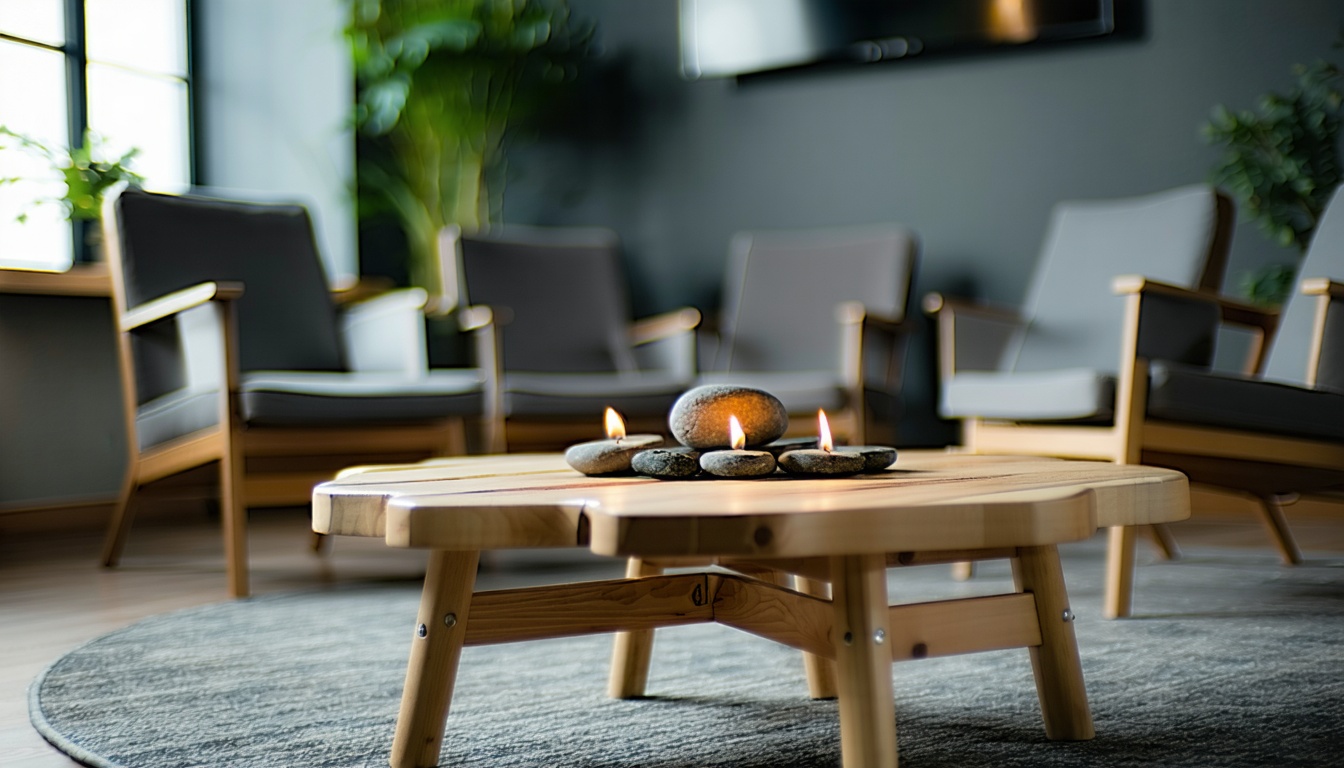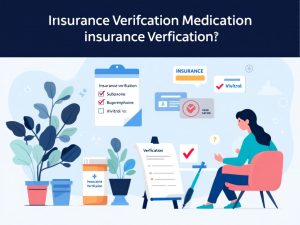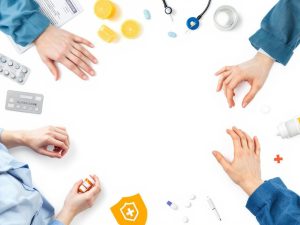Living with post‑traumatic stress can be overwhelming, and when you combine that with substance use, it may feel like there is no clear path forward. However, seeking a specialized PTSD addiction treatment is often the first critical step to reclaim your health and refocus your life. At Epic Health Partners, you will find a supportive environment that addresses co‑occurring conditions holistically, ensuring you receive the individualized plans necessary for lasting recovery.
Recognize the toll of trauma
Trauma can shape how you perceive the world, disrupt relationships, and influence coping strategies. In many cases, individuals with post‑traumatic stress disorder (PTSD) turn to alcohol or drugs to numb painful memories. Data from American Addiction Centers indicates that 25% to 49% of people with PTSD also develop a substance use disorder. This correlation highlights the powerful pull trauma exerts on daily life and underscores why specialized support is vital.
When PTSD symptoms, such as flashbacks or hypervigilance, collide with addiction, your emotional world can spiral out of control. You might find it challenging to regulate sleep, maintain relationships, or juggle job responsibilities. Some individuals discover that repeated substance use brings a temporary reprieve from intrusive thoughts but ultimately deepens the cycle of shame, anxiety, and isolation.
At Epic Health Partners, we view each client as a whole person rather than a list of symptoms. Your struggles—and strengths—become part of a comprehensive care plan, so you do not have to navigate the complexities of PTSD alone. Our team recognizes that unprocessed trauma can fuel substance use and works closely with you to alleviate distress in a constructive manner.
Why PTSD often overlaps with addiction
- Self‑medication coping: Many people attempt to soothe chronic anxiety or insomnia stemming from trauma by turning to substances.
- Neurobiological changes: Prolonged stress exposure, such as in PTSD, can desensitize the brain’s reward system, making certain substances temporarily enticing for relief.
- Increased vulnerability: If you are haunted by painful memories, it can be easier to slip into patterns of alcohol or drug dependency as a means to cope.
- Societal barriers: Stigma surrounding mental health often prevents people from seeking professional help and instead relying on substances to manage distress.
Understanding this overlap allows our clinical team to customize your therapy, focusing on the root causes of both PTSD and substance use simultaneously.
Embrace integrated solutions for better outcomes
Treating PTSD and addiction independently can lead to incomplete or short‑term improvements. Research from American Addiction Centers shows that integrated treatment, where both conditions are addressed in one cohesive plan, is the most effective approach. This framework helps you work through trauma in tandem with breaking the cycle of substance use, preventing you from feeling overwhelmed or facing conflicting therapeutic goals.
At Epic Health Partners, you can expect a coordinated effort. Therapists, psychiatrists, and case managers collaborate so that each aspect of your life—mental, emotional, social—is taken into account. Rather than juggling multiple programs, you have one unified support system that ensures your progress remains steady on all fronts.
Key benefits of integrated care
- Streamlined communication: Your care team shares insights and progress updates, reducing the chance of miscommunication or conflicting treatment goals.
- Improved relapse prevention: By confronting trauma triggers and addiction urges at the same time, you minimize the risk of one condition fueling the other.
- Enhanced emotional balance: You can begin to heal the root causes of PTSD, lessening your urge to rely on substances to cope.
- Holistic approach: Integrated solutions often involve medical oversight, individual counseling, group discussions, and alternative therapies, all under a single coordinated plan.
This synergy fosters real change. For instance, if you experience a flashback in a session, therapists can help you confront that trauma while also discussing how it might lead to urges to drink or use. By tackling both head‑on, you gain long‑term tools rather than quick fixes.
Understand the complexity of PTSD and substance use
Post‑traumatic stress is not always visible. You may look fine to others while carrying deep emotional scars. Equally, an addiction problem can remain hidden for a long time through avoidance or denial. However, the severity grows over time, and the impact on your health and relationships becomes more pronounced. According to SAMHSA, there has been a significant rise in people reaching out for help, indicating that more individuals understand the need for professional support.
Common signs of co‑occurrence
- Difficulty sleeping: Nightmares or persistent insomnia triggered by trauma, exacerbated by substance use that disrupts normal sleep cycles.
- Increased isolation: Feelings of shame and guilt, pushing you away from family and friends, intensifying reliance on substances for comfort.
- Emotional dysregulation: Mood swings, irritability, or episodes of anger linked to unresolved trauma, which can escalate when drugs or alcohol are involved.
- Physical health struggles: Substance abuse can lead to health complications like liver damage or nutritional deficiencies, compounding the stress already placed on your body by PTSD.
Epic Health Partners offers specialized assessments to evaluate these symptoms. Our clinical intake assessment is designed to understand the depth of your condition so our professionals can place you in the right program. Whether your challenges started before the trauma or after, identifying those contributing factors is essential for truly effective programming.
Consider unique needs faced by veterans
Veterans often experience intense or repeated traumas during service, leading to heightened vulnerability for co‑occurring PTSD and substance use disorders. Statistics from American Addiction Centers suggest that more than 2 in 10 Veterans with PTSD also have a substance use disorder, and nearly 1 in 3 Veterans who seek SUD treatment also reports PTSD symptoms. These numbers reflect the specialized care many military members need.
Tailored strategies for veterans
- Military‑aware therapy: Therapists trained in the specific culture, stressors, and experiences of combat can better guide you through recollections of active duty.
- Peer support groups: Connecting with others who have served can help you feel understood, spark empathy, and mitigate feelings of isolation.
- Veteran addiction support: Epic Health Partners offers group sessions and individual therapy that address the intricacies of trauma from deployments, multiple tours, or the transition to civilian life.
- Holistic healing: Complementary therapies like mindfulness or expressive arts can aid in coping with triggers related to combat memories.
Our mission is to provide you with the comprehensive care and support necessary for lasting recovery. If you are a veteran, know that Epic Health Partners recognizes your sacrifice and stands ready with an individualized plan to help you overcome PTSD and addiction.
Explore Epic Health Partners’ approach
Choosing the right provider can transform your life’s trajectory. At Epic Health Partners, we are dedicated to delivering evidence‑based, individualized plans for mental health and substance use conditions. Our programs are grounded in trauma‑informed addiction therapy, which recognizes how unresolved pain from past events can undermine your recovery efforts.
Comprehensive outpatient services
For many, outpatient care strikes the perfect balance between meaningful treatment and maintaining daily obligations. You might have responsibilities at work, at home, or within your community. We understand that stepping away from these roles is not always feasible or necessary. Therefore, our outpatient model is structured to meet you where you are in your life while still offering a robust recovery framework. Some of the services include:
- Trauma informed addiction therapy: A validated approach that addresses the underlying emotional wounds triggering substance use.
- CBT for addiction: Cognitive behavioral therapy designed to help you identify and change thought patterns fueling substance craving.
- Family therapy addiction: Engaging loved ones in the recovery process to rebuild trust and develop healthier communication strategies.
- Group therapy addiction: Connecting you with peers who share similar experiences, lessening feelings of isolation.
Every component of your plan aims to align with your schedule and personal circumstances, giving you the control and empowerment needed for steady progress.
Examine evidence‑based therapies for PTSD
When it comes to PTSD, certain therapeutic methods have proven especially effective. Prolonged exposure therapy, Cognitive Processing Therapy (CPT), and Eye Movement Desensitization and Reprocessing (EMDR) are often used to address distressing memories in a structured environment. While these approaches vary, their core goal is to help you reframe traumatic memories, reducing their intensity and emotional grip.
At Epic Health Partners, we incorporate multiple modalities based on your unique challenges. If you have co‑occurring depression or severe anxiety, we assess the best blend of talk therapy and medical support. For instance, you might practice mindfulness therapy or learn grounding exercises that you can use whenever flashbacks threaten to derail your day. These practical techniques, combined with consistent sessions, can gradually increase your resilience.
Benefits of evidence‑based modalities
- Allows safe processing of trauma memories without substances
- Teaches coping mechanisms for flashbacks and panic attacks
- Reduces fear and anxiety through repeated exposure to triggers in a controlled setting
- Improves emotional regulation, making relapse less likely
When you align clinically proven methods with an understanding, empathetic team, each session can be a building block toward regained independence.
Learn how addiction treatment complements PTSD therapy
If you are battling PTSD and an opioid dependency, anxiety might drive the urge to misuse medication. Conversely, if you started using substances prior to experiencing trauma, psychological distress can fast‑track you toward dependence. Our opioid addiction treatment program, for example, may involve both medication‑assisted therapy (where medically appropriate) and talk therapy to root out triggers. This comprehensive design ensures you do not inadvertently address one issue at the expense of the other.
Examples of our specialized services
- Heroin addiction treatment: Structured outpatient programs combined with counseling to tackle deep‑rooted emotional pain.
- Fentanyl addiction treatment: Harm‑reduction strategies, medical oversight, and relapse‑prevention therapies for a high‑risk substance.
- Prescription opioid treatment: Personalized plans that navigate the balance between legitimate medical needs and addiction management.
- Alcohol use disorder treatment: A focus on anxiety coping strategies, nutrition support, and accountability groups.
We adapt these programs to fit the co‑occurrence of PTSD, ensuring every therapy session also takes your mental health into consideration. By offering an array of specialized services, we can pinpoint precisely what you need for a stable, healthy lifestyle.
Appreciate the value of trauma‑informed care
Trauma‑informed care acknowledges that many individuals seeking help for substance abuse have lived through life‑altering events, whether it be military combat, personal violence, or other profound stressors. Studies published in NCBI show that integrating trauma‑informed approaches in community programs improves outcomes for individuals with PTSD and substance use disorders.
Principles of trauma‑informed care
- Safety: Ensuring that the therapeutic environment feels physically and emotionally secure
- Trustworthiness: Maintaining transparency about treatment goals, methods, and progress
- Collaboration: Recognizing that your input is vital in shaping the direction of your recovery
- Empowerment: Highlighting your strengths and offering tools that foster self‑efficacy
- Cultural considerations: Tailoring treatment to fit your background, beliefs, and social context
Adopting these principles can reduce the recurrence of painful memories, since you feel respected rather than re‑traumatized. This is especially crucial if your substance use started as a coping mechanism. Epic Health Partners works diligently to eliminate stigma and encourage open conversations about fear, shame, or guilt that commonly accompany trauma and addiction.
Look at the bigger picture of well‑being
Although PTSD addiction treatment forms the core of your recovery process, sustainable healing involves life skills, social support, and ongoing motivation. Our integrated programs may involve:
- Structured recovery program: A detailed, day‑to‑day plan that keeps you invested in healthy habits.
- Nutrition support addiction: Balanced meal planning and nutritional guidance to stabilize mood and energy levels.
- Life skills training addiction: Enhancing your ability to handle daily tasks, from budgeting to maintaining a routine.
- Recovery coaching: One‑on‑one mentorship that provides accountability and steady support as you work toward your objectives.
When you strengthen these foundational areas, you create a stable framework for mental and physical wellness. This holistic view helps you not only recover but also sustain a lifestyle that propels you away from relapse risks.
Overcome barriers to seeking help
Despite the proven efficacy of specialized programs, many people, including veterans and civilians, hesitate to seek professional intervention. A key hurdle is fear of judgment or uncertainty about how your family or workplace might react. As a result, you could inadvertently worsen your condition by delaying treatment.
We believe in a non‑punitive approach that prioritizes understanding and compassion over blame. If you are concerned about what to expect in an outpatient setting, our staff is happy to answer all your questions, from privacy policies to insurance coverage. We also provide telehealth addiction counseling and virtual therapy addiction services to increase accessibility for those who cannot always leave their home or job to attend sessions.
Common barriers and how to address them
| Barrier | Cause | Potential Solutions |
|---|---|---|
| Stigma and fear of judgment | Lack of understanding about mental illnesses | Education, support groups, empathetic counseling |
| Confidentiality concerns | Worried employers or family might find out | HIPAA protections, secure telehealth platforms |
| Time constraints | Work, family, and personal commitments | Outpatient scheduling flexibility, online options |
| Financial worries | Limited insurance coverage or high costs | Insurance accepted outpatient care, medicaid mental health provider, medicare mental health provider |
| Fear of revisiting painful trauma | Uncertainty about coping with triggers | Gradual exposure therapy, trauma‑informed approach, consistent therapeutic support |
Identifying these barriers is the first step in dismantling them. Our intake team will collaborate with you to ensure your PTSD and addiction treatment experience remains empowering rather than overwhelming.
Engage family and community support
Recovery seldom happens in isolation. Family members, friends, and peers can be vital assets in your journey if they understand the nature of PTSD and addiction. By involving loved ones in therapy sessions, you encourage empathy and openness. Family members often benefit from counseling themselves, learning more constructive ways to communicate and set boundaries.
At Epic Health Partners, you might find that your circle of support can expand or deepen. Engaging in group therapy can help you form bonds with individuals facing similar struggles. Over time, these relationships can become pillars of strength—something to lean on when temptation or emotional pain resurfaces.
Additional group options
- Group therapy addiction: A chance to relate to others, explore shared experiences, and hold each other accountable in a structured environment.
- DBT for addiction: Dialectical behavior therapy that emphasizes balancing acceptance and change, particularly beneficial for emotional regulation.
- Expressive therapy addiction: Encouraging creativity in storytelling, art, and movement to process trauma in more intuitive ways.
- Family therapy addiction: Joint sessions to improve communication strategies and address any enabling behaviors.
Through these avenues, you can cultivate the consistent support necessary for lasting recovery.
Plan for a meaningful future
Achieving sobriety and gaining control over PTSD symptoms is a major milestone, but the road does not end there. Long‑term success hinges upon ongoing maintenance, community integration, and personal growth. Many individuals find that volunteering, continuing education, or pursuing a new career path can help channel the energy once devoted to addictive behaviors.
Epic Health Partners remains engaged in your journey even after you complete the primary phases of therapy. Our ongoing services, such as recovery coaching or life skills training addiction, act as a buffer against relapse. With a purposeful daily structure in place, you transform your experiences—traumatic and otherwise—into valuable lessons that enrich your sense of self.
Tips to sustain positive momentum
- Create a relapse prevention plan: Outline warning signs, coping strategies, and contacts to reach out to if cravings or fear resurface.
- Focus on self‑care: Incorporate regular exercise, balanced meals, and mindfulness activities specifically suited to stress management.
- Maintain therapy appointments: Consistent follow‑up sessions can keep you accountable and address new challenges as they arise.
- Invest in your passions: Explore hobbies or educational paths that fill your time with meaningful, non‑substance‑related pursuits.
The chance to start again is a gift. With the right mindset and a supportive network, you can nurture a stable, fulfilling life.
Discover five frequently asked questions
Below are five common questions that often arise when exploring PTSD addiction treatment:
“How do I know if I need professional help for PTSD and substance use?”
If you have recurring flashbacks, nightmares, or high anxiety linked to a past event, and you also rely on alcohol or drugs to cope, professional help is often crucial. Changes in mood, relationships, and physical health can also indicate a need for treatment. An evaluation with a qualified mental health provider can determine the level of care appropriate for you.
“Are there any medications for co‑occurring PTSD and addiction?”
Yes. Medications such as SSRIs can relieve PTSD symptoms, and others like buprenorphine or naltrexone can assist with substance cravings. However, medication plans differ from person to person. Epic Health Partners offers medical oversight to ensure you access the best treatment approach for your situation.
“Can I receive treatment while maintaining my job or family duties?”
Absolutely. Our outpatient model is tailored for people who cannot fully disengage from professional or personal obligations. With flexible scheduling and telehealth options, you can receive comprehensive care without pausing your daily life.
“If I have relapsed in the past, is there really hope for lasting recovery?”
Yes. Relapse can be part of the learning process, not the end. It signals areas that need extra attention. Our integrated therapy model helps you understand triggers, build resilience, and develop healthier coping strategies, improving your chances of sustained sobriety and symptom management.
“How quickly can I expect to see results?”
The timeline differs for each person. Some experience relief within a few weeks, while others might need longer. Consistency in following your personalized treatment plan, engaging in therapy sessions, and practicing recommended coping techniques will influence the pace and depth of your progress.
Choose Epic Health Partners for trusted care
If you or a loved one are wrestling with the complexities of PTSD and addiction, it is never too late to pursue help. With integrated approaches, proven therapies, and a supportive atmosphere, Epic Health Partners offers a comprehensive path for your healing. From the moment you begin the clinical intake assessment to the ongoing guidance we provide longer term, our focus is on your well‑being.
We believe firmly in individualized care, rooted in empathy, and backed by the latest industry‑leading evidence. This dedication enables you to address the unique challenges stemming from trauma while embracing the support necessary for lasting recovery. Your hope for a healthier, happier life can become a reality.
Remember, reaching out for help is a courageous act. By investing in professional guidance at Epic Health Partners, you can form a solid foundation that helps you rise above the stronghold of PTSD and addiction. You do not have to face this journey alone—our dedicated team is here to walk with you every step of the way.







